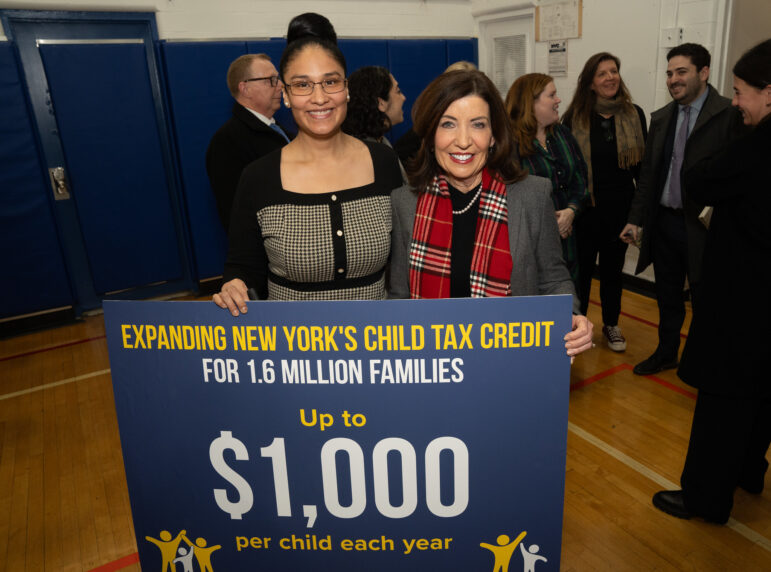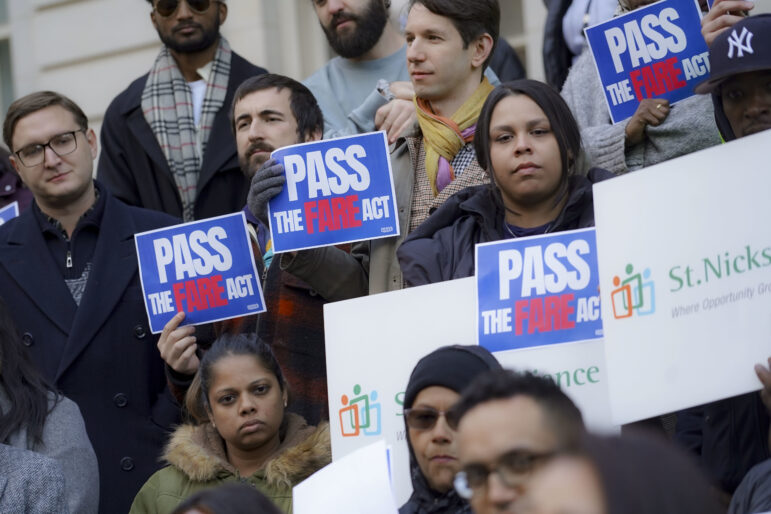Okay, so Ralph Nader’s mission to upend the two-party system didn’t exactly work out. But not every progressive third-party dreamer is wearing a long face these post-election days. “The Working Families Party had a FANTASTIC Election Day,” enthuses Executive Director Dan Cantor on the party’s web site (www.workingfamiliesparty.org). And though final statewide numbers aren’t yet available, it does look like the labor-backed WFP exceeded its pre-election goal of 100,000 votes statewide, with current estimates running between 102,000 and 110,000–double the party’s tally in the 1998 gubernatorial election.
Of course, it’s not like the WFP was running Harold Stassen and “Grandpa” Al Lewis. The party endorsed Democrats Al Gore for President and Hillary Clinton for Senator. In Clinton’s race, some within the party had hoped that her votes on their line might deliver the margin of victory in a close contest, giving the progressives a more powerful pull with this centrist Democrat.
If such a close race had materialized, the 51,000-odd WFP votes for Clinton might well have been her savior. But since Clinton ultimately prevailed over Republican Rick Lazio by a surprisingly robust 12 percentage points, that scenario has evaporated.
Nevertheless, what has Cantor and the rest of the WFP leadership really excited is the party’s newfound strength in minority and poor districts–like the 1,600 votes cast for Clinton on the Working Families line in one East New York assembly district.
“The numbers are more or less spectacular,” said Cantor. In 1998, the party got many more of their votes from white progressives. This time, those voters were joined by white working class people, and blacks in Brooklyn. “The growth came in Central Brooklyn, Far Rockaway, Flatbush, and in places like Syracuse and Buffalo–not in Park Slope,” he added. The result, Cantor claims, is that the WFP now has a legitimate claim as the third-largest party in the city.
Political consultant Hank Sheinkopf seconds Cantor’s optimism. “I’m bullish on them because of the increased activity of the labor unions,” he noted. “WFP is labor-driven. The activity of labor unions in this election was unequaled in recent memory. If that’s any indication, the WFP will ultimately be successful over time–defining successful as being bigger than the Liberal Party.”
While progressives might fret that the WFP lacks leverage over the Democratic candidates it routinely endorses–including pro-death penalty, pro-welfare “reform” pols like Senator-elect Clinton–Cantor does not foresee a major change in strategy. When asked about WFP plans to compete independently for offices, he said, “We’ll run our own candidates, but in the Democratic primary.” Whether Democratic candidates can win city- or statewide office on Working Families Party issues remains to be seen; but we can say that other minor parties might feel Green with envy.








